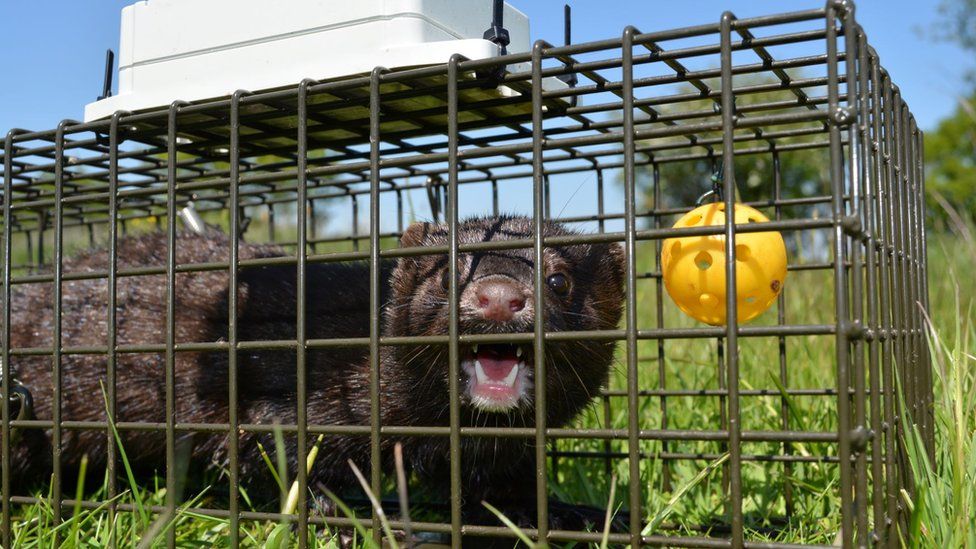Invasive mink almost eradicated from Broads as voles recover
- Published

Threatened water voles are making a comeback thanks to the success of a project trapping invasive mink, said a conservation body.
The Broads Authority said American mink had "bred intensively" in the Norfolk and Suffolk Broads.
The invasive species had "damaged birds and mammals" and led to "the local extinction of water vole populations in many areas", it said.
It believed the mink had been "nearly eradicated" from both counties.
In the 1920s, American Mink were bred for fur.
The Broads Authority said "favourable wetland habits" meant escaped mink bred and spread in the Broads, causing a 90% decline in rare water vole populations.
In 2003, the Broads Authority teamed up with Waterlife Recovery East and members of the public to begin trapping the mink.
During the first two-and-a-half years, almost 300 were caught around the River Wensum in Norfolk. A similar project was also set up in Suffolk, led by Suffolk Wildlife Trust.
This year, the projects have reported that only seven mink have been caught in Norfolk and five in Suffolk, with no indication they have been breeding.
'Cautiously optimistic'
The "smart traps" are on floating rafts - many of which sit on the land of volunteers.
They are fitted with a special excluder to prevent water voles and birds getting in.
When a trap door shuts, the animal is not harmed but it triggers a text message to a volunteer who then inspects it - and releases other visitors that may have wandered in.
The Broads Authority said caught mink were "safely and humanely dispatched by a trained professional or volunteer".
Simon Baker, of Waterlife Recovery Trust, said: "We are cautiously optimistic that mink eradication is possible.
"Our work with a dedicated community around our river networks, alongside recent additional funding and a scientific approach, is helping to protect wildlife and see water voles flourishing in the Broads again."
Those working on the project said success relied on support from the public and it wanted people to report sightings of mink to them.
Follow East of England news on Facebook, Instagram and X. Got a story? Email [email protected] or WhatsApp 0800 169 1830
Related Topics
- Published9 July 2023
- Published28 August 2021
- Published19 May 2017